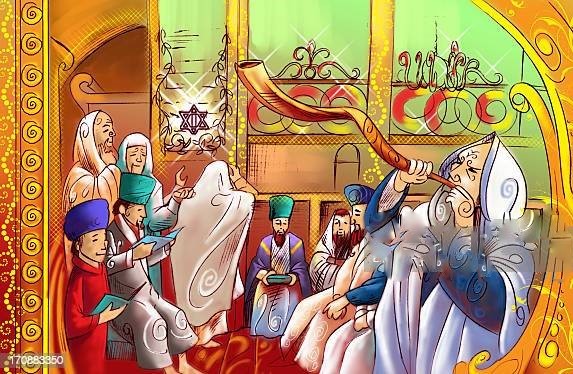📖 SATURDAY PRAYER: HOCHMA-YESHIVAT HAVERIM יְשִׁיבָה חברים – BABYLONIAN TALMUD p179

READING: BETWEEN MIDNIGHT AND DAWN OF SATURDAY
R. Johanan said: Even R. Nathan holds a man culpable if he carries a person, animal, or bird that
is bound.
“If he carried a corpse,” etc. Said Rabba b. b. Hana in the name of R. Johanan, and the same
was said by R. Joseph in the name of R. Simeon b. Lakish: R. Simeon frees one, even if he
carries out a corpse for burial. Said Rabha: “Even R. Simeon concedes that if one carry out a
spade to dig a grave with, or a scroll to read from, he is culpable.” Is this not self-evident?
Should we then assume that according to R. Simeon’s opinion even this kind of labor is not labor
for its own sake, how can we find any labor for its own sake which in the opinion of R. Simeon
would involve the liability of a sin-offering? Lest one say that R. Simeon does not hold a man
culpable for carrying a thing unless the work done with the thing is both for the man’s sake and
also for the sake of the thing itself–for instance, if the spade was needed for digging and also
had to be sharpened, or the scroll had to be examined and used for reading–hence he informs us
that such is not the case.
There was a corpse in Drokra 2 and R. Na’hman b. Itz’hak permitted it to be carried out into
unclaimed ground. Said R. Johanan, the brother of Mar, son of Rabhina, to R. Na’hman b.
Itz’hak: “According to which Tana’s opinion do you act? According to R. Simeon? Did R.
Simeon allow this? He only stated that the act does not involve the liability of a sin-offering, but
he did not permit it to start with?” R. Na’hman answered: By the Lord! You yourself, and even
R. Jehudah, would allow this to be done the same as I did; did I say that it was to be carried into
public ground? I said unclaimed ground! Do not forget that this was also for the sake of the
honor due a human being, of which it is said: “Precious is the honor of man, and for its sake
even a direct commandment of the Scripture may be circumvened!”
MISHNA VII.: One who pares his finger-nails, either by means of his nails or by means of his teeth; also one who plucks hair from his head, beard, or lip,; also a woman who braids her hair, or paints her eyebrows, or parts her hair, is, according to R. Eliezer, culpable. The sages, however, declare this to be (prohibited only by rabbinical law) as a precautionary measure.